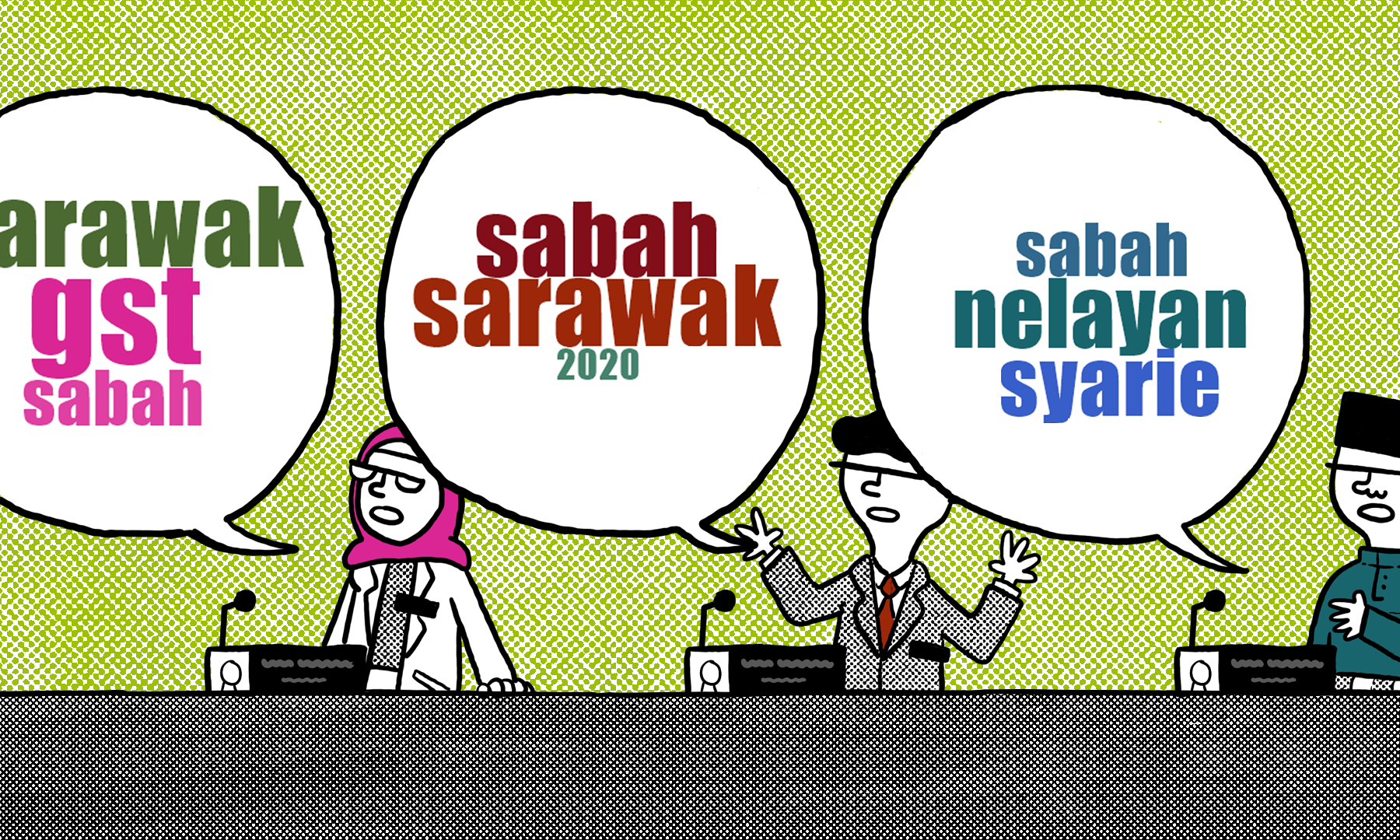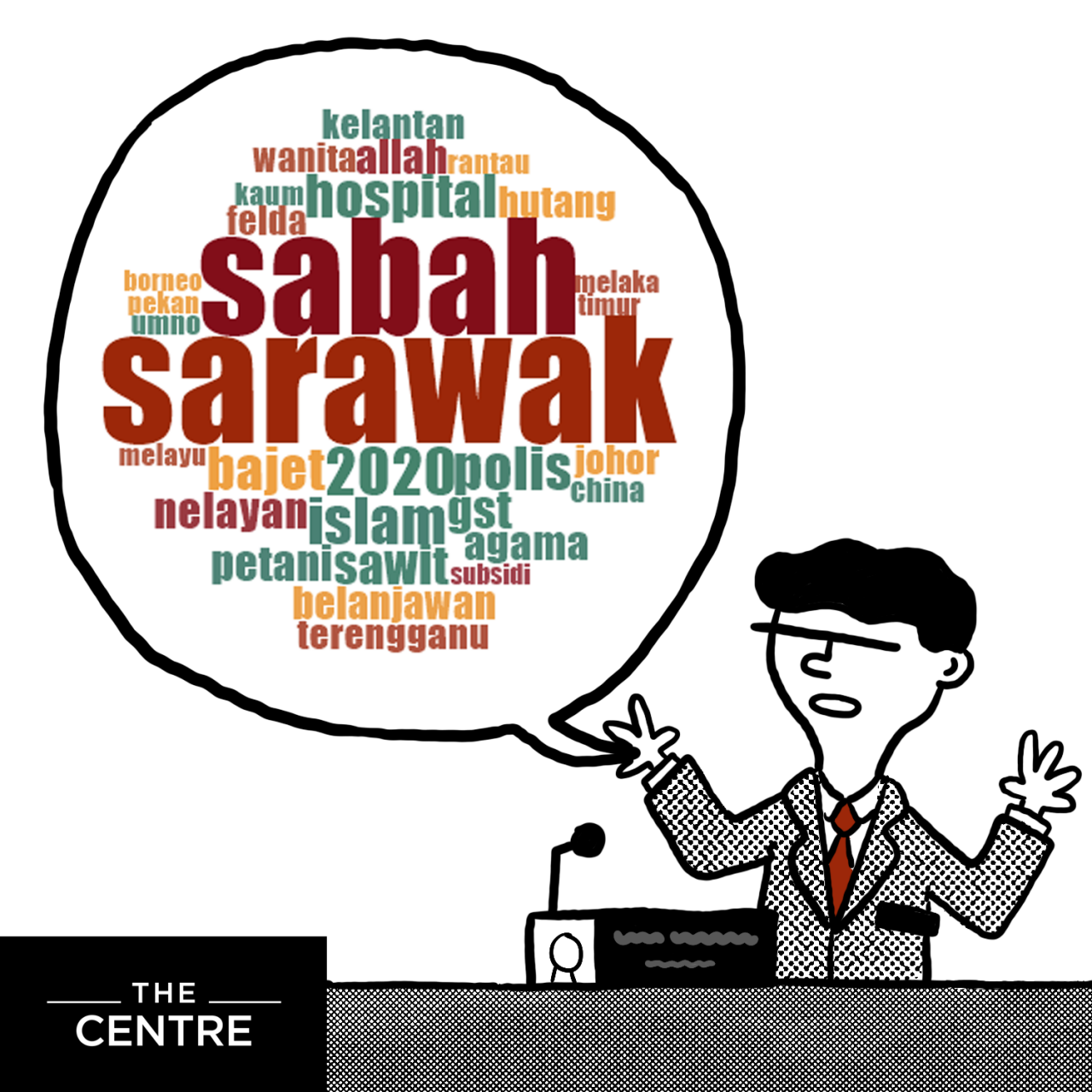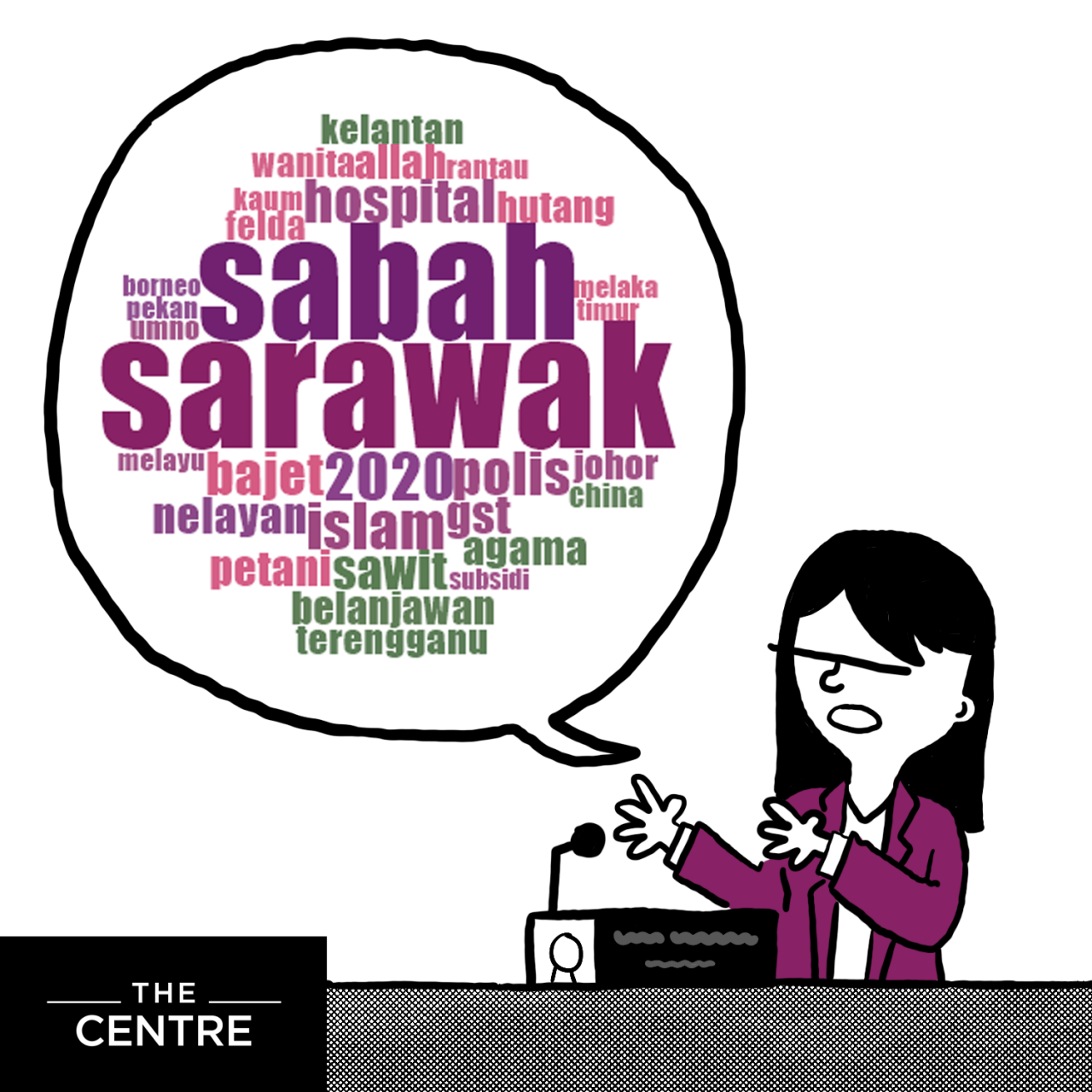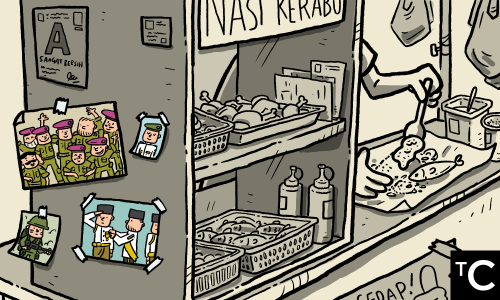Research and advocacy of progressive and pragmatic policy ideas.

Do MPs Actually Talk “Rubbish” In The Post-GE14 Dewan Rakyat?
A fun look at what our parliamentarians say in the Dewan Rakyat.
By Jia Vern Tham & Nelleita Omar17 December 2019
Introduction
- We often come across news reports of heated exchanges between our MPs in the Dewan Rakyat since GE14 — be it the recent suspension of MPs for linking Chin Peng’s ashes to Hindu holy ash, the "Taliban" saga in March this year, and the infamous "F**k you" incident last year.
- Quarrels and tantrums aside, however, parliament debates are a way the public can find out about the thoughts and opinions of our MPs on many important issues. Through the debates, we see what is considered important by our elected representatives, how various groups of MPs speak within the Dewan, and how they respond to debate motions.
- While transcripts of these debates are available to the public, they are not easily digestible: one day’s transcript can be over a hundred pages long!
- So we thought — for fun — we’d take on some of the hard work and look at the 30 topics that have been talked about the most in Parliament in an attempt to gauge the policy concerns of elected representatives and the extent to which they are reflected in the news.
- We used Nvivo to analyse hansards – no scientific hypotheses or anything: we just wanted to know what was said on record – so we performed a surface level frequency count. Given the basic nature of the analysis, we’re not making any inferences or suggestions: but even then, the findings have been quite illuminating.
Hansards are transcripts of parliamentary debates. The hansards used in The Centre’s analysis for this piece (accurate as of 28.11.2019) can be accessed here.
The truth about MPs’ priorities in the Dewan Rakyat
- Numerous events involving politicians’ wrongdoings, as well as cases of bribery and money laundering made national headlines in the post-GE14 era. With that in mind, we also conducted an informal Instagram poll to gauge what the public thought MPs talked about in Dewan Rakyat.
- As this was an Instagram poll, the respondents are not representative of Malaysians so we’re not making any generalisations. But of the 52 of you responded – a small sample – this is what you thought: MPs have been talking "rubbish", "nonsense", and blaming each other in Parliament.
- Our word frequency query on NVivo of the hansards meanwhile revealed that matters pertaining to Sabah and Sarawak took prominent spots in post-GE14 parliament debates. Other topics that appeared rather frequently include the police force, Islam, and issues that involve 2020.

- The themes shown above portray a general picture of the Parliament’s debates post-GE14 — so we thought we’d dig a bit deeper and look at each meeting session. Did our MPs always talk about Sabah and Sarawak a lot?
- There is also the added dimension of what the media said: so we also compared what was said in the hansards with what made the news headlines during the same period. Here’s what we found…
The most popular topics changed over different parliament meetings
- Dewan Rakyat debates often involve current affairs at the time of meeting, but there seems to be a number of persistent topics.
- To give you a better picture, here’s how the biggest topics in the Dewan Rakyat changed over various parliamentary sessions since GE14:
First meeting: 16.07.2018 — 16.08.2018
- In the first parliamentary session after May 9th, GST, Sabah, Sarawak, and SST took top spots of the 30 most frequently mentioned topics in the Dewan.

- News articles pertaining to the abolition of GST and the introduction of SST dominated headlines in the same period. Although the abolition had business owners and civil society chipping in about its benefits, there was also backlash from the Opposition — specifically then Opposition leader Datuk Seri Ahmad Zahid Hamidi.
- Pakatan Harapan’s promise to raise oil royalty for Sabah and Sarawak to 20% or equivalent value also came under scrutiny in the news at the time, especially after Economic Affairs Minister reportedly postponed the implementation of the manifesto promise. Other matters that made headlines for both states include a bird flu outbreak in Sabah, the Pan Borneo Expressway, and a new housing policy for the lower income group in East Malaysia.
Second meeting: 15.10.2018 — 11.12.2018
- Sabah and Sarawak retained their top two spots in this parliament meeting; what followed was the Budget, and hospitals.

- While headlines at the time were focused on the effects of Budget 2019 on Sabah and Sarawak, there was backlash from activists and politicians alike — United People’s Party (SUPP) president Datuk Dr. Sim Kui Hian reportedly claimed that the word "Sarawak" was only mentioned five times by Finance Minister Lim Guan Eng during the tabling of Budget 2019. On top of that, more than half of Sabah’s schools were reportedly dilapidated — however a check on the hansards revealed that this particular issue was not mentioned in the Dewan.
- Regarding hospitals, a look at the hansards showed that MPs were mostly concerned about housemen’s training across the country. This was reflected in news headlines that mentioned the failure of pharmacists to get permanent posts after the completion of their housemanship.
Third meeting: 11.03.2019 — 11.04.2019
- In the first parliament meeting of 2019, Sabah and Sarawak took the same spots again after the amendment Bill to Article 2(1) of the Federal Constitution failed to get two-thirds majority in the Dewan — which meant both states could not regain their rights as equal partners in the country. News headlines at the time showed the backlash towards this vote from the public and a former MP.

- Felda came third in this parliament meeting following news headlines that indicated misappropriation of funds for purposes of GE14 and "bad" investment decisions. The saga resulted in a RM6.23 billion government aid for the palm oil plantation agency.
- Meanwhile, Islam and religion (agama) made the list following reiterations of Islam being the religion of the Federation. In the same period, news headlines regarding Islam emerged — a Malaysian man was sentenced to 7 months’ jail and fined RM10,000 for insulting Islam in a Facebook post. On top of that, it was reported at the same time that a special unit set up by JAKIM to monitor provocations against Islam received 10,000 complaints within a week.
Fourth meeting: 01.07.2019 — 18.07.2019
- In this meeting — matters pertaining to fishermen (nelayan) took over Sabah and Sarawak as the most frequently mentioned topic in the Dewan, although the two East Malaysian states continued to be prominently mentioned.

- In that period, a protest by hundreds of fishermen from Penang and Perak over the Penang South Reclamation (PSR) made headlines. The protest led to the formation of a Penang special task force, and the state government had planned a meeting to offer assistance to local fishermen affected by PSR.
- Syarie made the list due to the Syarie Legal Profession (Federal Territories) Bill 2019, which stipulates that syarie lawyers are required to go through six months of mandatory chambering and familiarise themselves with laws and procedures to be complied with when handling cases.
- The historic Undi 18 bill was debated and passed in the session as well. News regarding its benefits and opinion letters made headlines within this period.
Fifth meeting: 07.10.2019 — 28.11.2019
- On top of the tabling of Budget 2020, Sabah, Sarawak, and the police force were the most prominent topics in the Dewan last month.

- In the news, East Malaysia made national headlines over its plans to set up an airline, mixed reactions over its budget allocation, and being urged to amend its wildlife laws.
- Meanwhile, the police force was heavily mentioned due to the introduction of an Independent Police Complaints and Misconduct Commission (IPCMC), which aims to enhance the integrity and capability of the Royal Malaysia Police (PDRM). News headlines on this topic revolved around the possibility of investigating the Inspector-General of Police (IGP) and being accused of undermining the dignity of the police force.
So there you go – that’s what our hansard analysis found! Were you surprised? Continue the conversation on our Twitter, Facebook or Instagram pages!
This analysis excluded certain common nouns, verbs, and adjectives for the purposes of clearer results. Contact us at info@centre.my for a full list of exclusions.
The Centre is a centrist think tank driven by research and advocacy of progressive and pragmatic policy ideas. We are a not-for-profit and a mostly remote working organisation.



